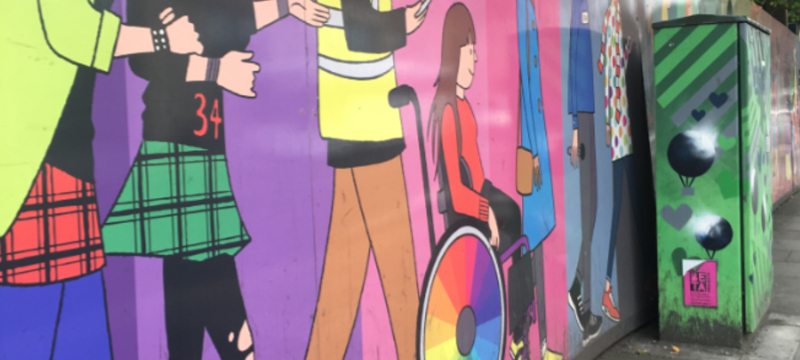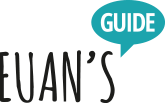What is Disability Pride?

Disability Pride Month takes place in July around the world but started in the USA as it coincides with the anniversary of the Americans with Disabilities Act. As it is the thirtieth anniversary of this Act being founded, I have noticed a lot of conversation over social media on what disability, disabled activism, and pride means to everyone. I believe that Disability Pride is about self-acceptance and self-love in a world that constantly tells you that you’re broken. It is an active defiance of the idea that being disabled is the individual’s fault, and that disabled people must change to fit into society’s idea of what is “normal” and “productive.”
Over the month of July, I read a lot of stories, I shared different narratives with my followers, and I learnt so much about my own history. Only recently have I sat back and thought about what Disability Pride means to me.
I have been disabled from birth, and therefore do not know any other experience – this is my normal. Of course, I disliked hospital visits, surgeries and long recoveries like anybody else would, but I did not feel disabled until I started to engage with other areas of the outside world. My parents fought for me to attend a mainstream school despite local authorities wanting to place me in an Additional Support Needs facility – by doing this it would have saved the council money but wouldn’t have helped me at all in my education. I was the only kid in school with a physical disability and was teased about having a walking frame and having to take longer to do things. I didn’t feel like a trailblazer but instead I felt like a burden and that there was something wrong with me.
When I went to high school I wasn’t bullied as much, but definitely felt like a burden by the institutions that were supposed to educate and help me. It showed me that ableism isn’t always hate speech and lack of physical access to places. It can be teachers telling me to aim lower because I shouldn’t waste my time on advanced grades or people being shocked that I want to take part in school concerts. The feeling that you’re not good enough plagues you in all aspects of your life, and I don’t feel like it stems from being a wheelchair user or having Cerebral Palsy. I think it comes from society’s expectations of what a disabled person is, what they do or should do, and what they can or can’t do.

Later in life as I started to succeed in school and university, and build strong friendships and relationships, I began to have a type of imposter syndrome. I couldn’t believe that my accomplishments were based on my own merit, because during my life I was explicitly or implicitly told or shown that disabled people can’t be successful. This thinking, of course, is very wrong and I do deserve the stability and happiness I work hard for. My anxiety around these things comes in ebbs and flows, and even when I do reach a milestone or jump a (metaphorical) hurdle in academia or my personal life, it doesn’t mean that ableism has been conquered.
I’ve noticed that a lot of my self-proud moments come from travelling and breaking the outdated expectations that others may have had about disabled people. I’ve been to a lot of places around the world and no matter where I end up, I’ll get stared at and questioned about my wheelchair. A refreshing observation I sometimes get from strangers is, “Wow, I didn’t know a person in a wheelchair could do what you’re doing!” This statement is ableist as it is based on the assumption that I couldn’t do things in the first place – but that stranger seeing me for the first time might change the assumption, and they might think differently next time.
I’m proud of this, and a lot of things I’ve worked on in life, but I wouldn’t say that I’m an inspiration just for turning up and doing it. As well as this, I shouldn’t have to be grateful for venues having a toilet that I can actually use or be grateful that I’m being treated like my non-disabled peers, but that is the way that society sees fit right now. I hope that in my lifetime, disabled people are treated much better, helped more, can access a suitable toilet easily, and are able to thrive in whatever field they want to be in. Above all else, I want disabled people to be truly proud.
As Imani Barbarin writes, “Disabled people shouldn’t have to be resilient, but I celebrate our resilience anyway. Disabled people shouldn’t have to be creative to combat an inaccessible world, but I celebrate our creativity anyway. Disabled people shouldn’t have to shout for equity and inclusion, but the chorus of our voices is a melody that brings me to tears in gratitude.”
 |
Written by Kayleigh O'Neill, Communications Intern and Euan’s Guide Ambassador |
and Euan’s Guide Ambassadoand Euan’s Guide Ambassado


 Follow Euan's Guide on Instagram
Follow Euan's Guide on Instagram
 Follow Euan's Guide on LinkedIn
Follow Euan's Guide on LinkedIn
 Follow Euan's Guide on Facebook
Follow Euan's Guide on Facebook


Comments
You have to be signed in to leave a comment.
Login / Signup